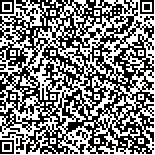下载中心
优秀审稿专家
优秀论文
相关链接
摘要

南极数字高程模型DEMs(Digital Elevation Models)是研究极区大气环流模式,南极冰盖动态变化和南极科学考察非常重要的基础数据。目前,科学家已经发布了五种不同的南极数字表面高程模型。这些数据都是由卫星雷达高度计,激光雷达和部分地面实测数据等制作而成。尽管如此,由于海洋与冰盖交接的南极冰盖边缘区随时间的快速变化,有必要根据新的卫星数据及时更新南极冰盖表面高程数据。因此,我们利用雷达高度计数据(Envisat RA-2)和激光雷达数据(ICESat/GLAS)制作了最新的南极冰盖高程数据。为提高ICESat/GLAS数据的精度,本文采用了五种不同的质量控制指标对GLAS数据进行处理,滤除了8.36%的不合格数据。这五种质量控制指标分别针对卫星定位误差、大气前向散射、饱和度及云的影响。同时,对Envisat RA-2数据进行干湿对流层纠正、电离层纠正、固体潮汐纠正和极潮纠正。针对两种不同的测高数据,提出了一种基于Envisat RA-2和GLAS数据光斑脚印几何相交的高程相对纠正方法,即通过分析GLAS脚印点与Envisat RA-2数据中心点重叠的点对,建立这些相交点对的高度差(GLAS-RA-2)与表征地形起伏的粗糙度之间的相关关系,对具有稳定相关关系的点对进行Envisat RA-2数据的相对纠正。通过分析南极冰盖不同区域的测高点密度,确定最终DEM的分辨率为1000 m。考虑到南极普里兹湾和内陆地区的差异性,将南极冰盖分为16个区,利用半方差分析确定最佳插值模型和参数,采用克吕金插值方法生成了1000 m分辨率的南极冰盖高程数据。利用两种机载激光雷达数据和我国多次南极科考实测的GPS数据对新的南极DEM进行了验证。结果显示,新的DEM与实测数据的差值范围为3.21-27.84 m,其误差分布与坡度密切关系。与国际上发布的南极DEM数据相比,新的DEM在坡度较大地区和快速变化的冰盖边缘地区精度有较大改进。
Digital Elevation Models (DEMs) for Antarctica are critical datasets for general circulation models, change analysis of ice sheet dynamics and logistical planning of field expeditions. To date, there are five different DEMs covering all of Antarctica, all of which were derived from satellite radar or laser altimetry data in combination with ground data. Since the margins of ice sheets are highly dynamic in space and time, DEMs of Antarctica should be updated frequently as new data become available. We used Radar Altimeter (RA-2) data from Envisat and laser altimeter (GLAS) data from ICESat to create an up-to-date DEM of Antarctica with high accuracy and precision of elevation measurement. In this paper, these two different sources of satellite altimeter data from 2003 to 2009 were integrated to generate a DEM for the entire continent of Antarctica. We applied five different quality judgment rules to filter unreliable ICESat/GLAS data; as a result, 8.36% of the data were filtered out. A relative correction method based on speckle geometry intersection was used to correct Envisat RA-2 elevations to ICESat/GLAS. The data were interpolated to a regular 1000 m polar stereographic grid using ordinary Kriging after semi-variance analysis. The accuracy of the final DEM was assessed through a comparison with two airborne LiDAR datasets, a field GPS strip from China's Zhongshan Station to Dome A and the most recently published DEM. The comparison result shows that the error of the new DEM is from 3.21 m to 27.84 m, and the distribution of errors depends on the surface slope. The new DEM shows an obvious improvement on steep slopes, including the quickly changing ice sheet margin areas.

